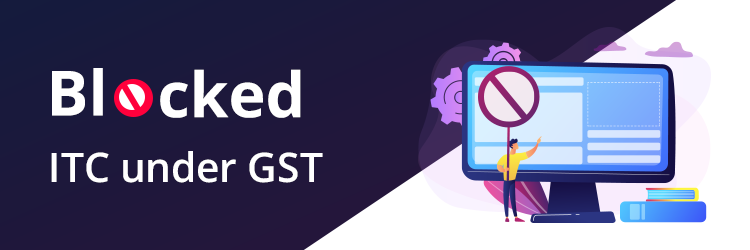
Input Tax Credit (ITC) forms the cornerstone of the Goods and Services Tax (GST) system in India. It allows businesses to offset the tax they’ve paid on inputs against the tax they are liable to pay on output, thereby preventing the cascading effect of taxes. However, not all input taxes are eligible for credit under GST law. Section 17(5) of the Central Goods and Services Tax (CGST) Act, 2017 outlines various scenarios where input tax credit is blocked or ineligible. Let’s delve into the nuances of this provision to gain a comprehensive understanding.
Understanding Section 17(5) of the CGST Act
One of the fundamental principles of GST is to ensure the seamless flow of credit throughout the supply chain. However, certain restrictions are imposed to prevent misuse and ensure the integrity of the system. Section 17(5) of the CGST Act enumerates specific situations where input tax credit is not available. These include:
1. Motor Vehicles:
- ITC on motor vehicles is generally allowed, except in certain cases:
- Motor vehicles used for transportation of passengers with a seating capacity of 13 or less, unless they are used for specific purposes like further supply, transportation of passengers, or imparting driving training.
- General insurance, servicing, repair, and maintenance of motor vehicles, except under specified circumstances such as when received by manufacturers or suppliers of such vehicles.
2. Other Exclusions:
- Several other categories of goods and services are ineligible for input tax credit, including:
- Food and beverages, outdoor catering, beauty treatment, health services, life insurance, etc.
- Membership of clubs, health and fitness centers, and travel benefits extended to employees.
- Works contract services for the construction of immovable property (other than plant and machinery).
- Goods or services used for construction of immovable property on one’s own account.
- Goods or services on which tax has been paid under the composition scheme.
- Goods lost, stolen, destroyed, or disposed of as gifts or free samples, among others.
Consequences of Availing Ineligible ITC:
- Taxpayers who claim ineligible ITC are required to reverse the amount claimed in their GSTR-3B returns.
- Additionally, interest at the rate of 18% per annum is levied from the date of filing the GSTR-3B with the wrong ITC until its reversal.
Conclusion: Understanding the provisions of Section 17(5) of the CGST Act is crucial for businesses to ensure compliance with GST regulations. It is essential to exercise diligence while claiming input tax credit and to refrain from availing credit in scenarios where it is explicitly blocked or ineligible. By adhering to these guidelines, businesses can avoid potential penalties and maintain the integrity of the GST system.
This article is only a knowledge-sharing initiative and is based on the Relevant Provisions as applicable and as per the information existing at the time of the preparation. In no event, RMPS & Co. or the Author or any other persons be liable for any direct and indirect result from this Article or any inadvertent omission of the provisions, update, etc if any.
Published on: April 9, 2024
